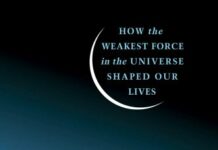
Ebook Info
- Published: 2022
- Number of pages: 272 pages
- Format: PDF
- File Size: 1.73 MB
- Authors: Brian Clegg
Description
Space is big. Really big. You just won’t believe how vastly, hugely, mind-bogglingly big it is. I mean, you may think it’s a long way down the street to the chemist, but that’s just peanuts to space.’ Douglas Adams, Hitch-hiker’s Guide to the GalaxyWe human beings have trouble with infinity – yet infinity is a surprisingly human subject. Philosophers and mathematicians have gone mad contemplating its nature and complexity – yet it is a concept routinely used by schoolchildren. Exploring the infinite is a journey into paradox. Here is a quantity that turns arithmetic on its head, making it feasible that 1 = 0. Here is a concept that enables us to cram as many extra guests as we like into an already full hotel. Most bizarrely of all, it is quite easy to show that there must be something bigger than infinity – when it surely should be the biggest thing that could possibly be. Brian Clegg takes us on a fascinating tour of that borderland between the extremely large and the ultimate that takes us from Archimedes, counting the grains of sand that would fill the universe, to the latest theories on the physical reality of the infinite. Full of unexpected delights, whether St Augustine contemplating the nature of creation, Newton and Leibniz battling over ownership of calculus, or Cantor struggling to publicise his vision of the transfinite, infinity’s fascination is in the way it brings together the everyday and the extraordinary, prosaic daily life and the esoteric.Whether your interest in infinity is mathematical, philosophical, spiritual or just plain curious, this accessible book offers a stimulating and entertaining read.
User’s Reviews
Editorial Reviews: Review Here [Clegg] has done an excellent job of making the most complex concepts accessible while allowing their mystery to continue to shimmer just out of focus. –Kirkus ReviewsClegg is immensely readable and manages to convey to a lay audience some of the key mathematical ideas concerning infinity… a success. –H. Geiges, Times Higher Education SupplementAn accessible and, of course, open-ended overview of infinity as conceived of and wrestled with by theologians, mathematicians and philosophers, from Ancient Greece onwards… endlessly fascinating. –Laurence Phelan, The Independent About the Author Brian Clegg studied physics at Cambridge University and is a Fellow of the Royal Society of Arts. He has written a number of popular science books including A Brief History of Infinity, Light Years, The God Effect and Before the Big Bang.
Reviews from Amazon users which were colected at the time this book was published on the website:
⭐Algebra and math subjects often loose me at the first chapter. Clegg held my interest to the very end – pun intended. There is repetition but I retained more than I usually do with these subjects. The take-home was my own “learned opinion”.
⭐Easy to read
⭐Enjoyable book and was at the end before I knew it…..not a book of infinite tedium!!!
⭐A Brief History of Infinity – The Quest to Think the Unthinkable by Brian Clegg is a good introduction for the layman to the historical development of the concept of infinity. Clegg’s book is a good book, but not an exceptional one. I found the first half to be less engaging, as perhaps the sections on Greek mathematics and the historical development of calculus were too familiar. The second half is much better, especially the discussion of Cantor’s transfinite numbers. On balance, A Brief History of Infinity rates four stars and should appeal to a wide audience.Clegg touches on a wide range of topics, often exploring unexpected connections and tangential matters. Sometimes his side trips are diverting and enjoyable, but at other times I found these digressions to be overly distracting. (The discussions on quantum physics seemed unnecessary; there so many good books for the layman available.) But to be fair, infinity is a broad topic and other readers may well find Clegg’s far ranging approach to be stimulating and enjoyable.Clegg addresses in a credible fashion Galileo’s investigations of infinity, the battle between Newton and Leibniz (and Bishop Berkeley too) over infinitesimals, Cantor’s transfinite numbers, and Robinson’s non-standard analysis. These non-technical discussions are neither too superficial, nor too vague.For readers willing to delve deeper into the mathematics of infinity, I highly recommend The Philosophy of Set Theory – An Historical Introduction to Cantor’s Paradise by Mary Tiles. This is not an easy book as it primarily targets advanced students in philosophy and mathematics. Nonetheless, it is within reach of a persistent reader. Some sections can be read stand-alone; three mid-chapters (Numbering the Continuum, Cantor’s Transfinite Paradise, and Axiomatic Set Theory) are outstanding and in themselves are worth the price of this book.Going a step farther, a math major might wish to tackle Georg Cantor’s Contributions to the Founding of the Theory of Transfinite Numbers. I particularly recommend the Dover reprint of the same title as it contains a lengthy introduction by the mathematician Philip E. B. Jourdain.There is yet a third book to consider, one that has the same title as Brian Clegg’s book. A Brief History of Infinity by Paolo Zellini (translated by David Marsh) “explores every aspect of infinity, distilling the wisdom of philosophers, artists, mathematicians, and theologians over the millennia”. Less mathematical than my other two recommendations, Zellini’s work is nonetheless quite challenging. It provides a detailed examination of philosophical issues underlying the concept of infinity.
⭐I have enjoyed this book very much. The subtitle directs the reader to the subject, which is a history of the study of infinity. The history is accurate, to my knowledge, and entertainingly presented. The mathematics is basic but enlightening to its intended readership and serves to further the historical discourse. The quotations, such as those of Galileo, are well chosen and convey the intellectual environment of the time. There are many tomes available which plummet the mathematical intricacies of the subject or which go into minute historical details, but this overview should be a delight to those who would be engagingly introduced to a frequently formidable concept. (One detail: on p.69 we read: “although [transcendence of calculation by equation] is the case with pi, we now know the value of this quirky number to many thousands of decimal places.” Pi was, in fact, calculated to a million places in the 1970s and is astronomically farther along now.)
⭐In Infinity Brian Clegg traces the history of this often perplexing mathematical idea. We are introduced to many historical figures who wrestled with some aspect of this concept including Bertrand Russell, Galileo, Plato, Augustine, Archimedes, Descartes and Bernard Bolzano. Georg Cantor, the founder of set theory, is prominently mentioned in connection with the mathematics of infinity. Clegg says that mathematics is not based on the real world, but rather on a carefully constructed set of rules. He also cites some famous paradoxes such as David Hibert’s hotel and the paradox of Gabriel’s horn.Mathematicians and people interested in math and math history may well enjoy this book. I personally found it rather difficult to follow and not very interesting, but I am not really much interested in math.
⭐Review of A brief history of infinity: the quest to think the unthinkable by Brian Clegg.CITATION: Clegg, Brian (2002). A brief history of infinity: the quest to think the unthinkable. London: Robinson.Reviewer: Dr W. P. Palmer.This reviewer has an interest in the history of science and found the lives of the various mathematicians, given briefly, as one of the positive features of the `A brief history of infinity’. Several of the mathematicians mentioned also had scientific discoveries to their credit, such as Newton and Galileo and the historical information about these scientists, though brief, appeared accurate. The mathematical work of Galileo mentioned showed him to be more of a polymath than I had realised. However, when Clegg mentions `Brownian motion’, Clegg’s claim to historical accuracy is severely dented. Robert Brown, not James Brown (p. 213), is usually considered the discoverer of the phenomenon of Brownian motion, though the phenomenon had been noticed half a century earlier. James Brown was a Scottish clergyman and the father of Robert Brown (1773-1858). Robert Brown was Scottish and not English. Errors, such as this, should have been edited out.What of the book more generally? A number of other reviewers found the writing a little dull and I have to agree with that opinion. However, I did learn a lot from the book and I have a fuller view of the concept of infinity than I had previously. I liked the last chapter with its story of Gabriel’s Horn, a paradox that was new to me.Overall, though not enthused, I find that it was a worthwhile read.BILL PALMER
⭐This is a well written book that will be enjoyed by most people who have an interest in maths, science or philosophy.The author looks at thought and inquiry into maths, numbers and the infinite from Ancient Greece to the present day.Heroes and landmarks in our journey include Plato, Aristotle and Archimedes; Saint Augustine and “The City of God”; Galileo Galilei; Isaac Newton and Leibniz and the development of differential calculus; Georg Cantor; Kurt Godel and the incompleteness theorem.One curiosity – I wasn’t able to finish the book. No matter how much I continued reading I never got any closer to the end.
⭐* PhysicalThis book is well bound for a paperback in standard quality paper. It’s mostly text with a few graphs to illustrate a point here and there.* Target audience, A – level / H.N.D, Undergraduate, Graduate, Postgraduate?This book (i.m.h.o) is designed for A-Level, or first year degree students that need a bit of background fleshing – out of some fundamental terms in some supporting math topics. The author makes it very easy to get on with and reading this book is a gentle slope in difficulties and in some related and associated topics. This book (i.m.h.o) did not ‘get going’ until the middle and later chapters, as it described the backgrounds of the math characters in mostly historical descriptions up to this general point. After progressing, more was made of the features of infinity which is why i bought this book and it attracted me to this volume. There is nothing here in this book i didn’t know or have read about already from other sources. But this is not to say the book is not beneficial to other readers with less studies under their belts and want to learn about these topics in mostly historical terms.* SummaryIf you’re new to math and enjoy recreational historical explorations of mathematical history, this is a book to consider but don’t expect to delve deeply and broadly within this area of mathematical studies.
⭐A fascinating book on the development of the mathematical understanding of infinity, enlivened with accounts of some of the key personalities. Brian Clegg includes quite a lot of maths: he has the gift of explaining it in a way which means that you need only an elementary knowledge of maths (really just basic simple arithmetic), and a little concentration, to understand the full detail. The result is a model of how to explain sophisticated mathematical concepts to non-specialists without over-simplification. I really enjoyed the book, and thoroughly recommend it.
⭐Very very interesting in every way.
⭐Some of it takes a bit of thought to really understand the concepts. However, you can skip these and get a good feel for the topics.Also interesting are the background stories about the main characters.
Keywords
Free Download A Brief History of Infinity: The Quest to Think the Unthinkable in PDF format
A Brief History of Infinity: The Quest to Think the Unthinkable PDF Free Download
Download A Brief History of Infinity: The Quest to Think the Unthinkable 2022 PDF Free
A Brief History of Infinity: The Quest to Think the Unthinkable 2022 PDF Free Download
Download A Brief History of Infinity: The Quest to Think the Unthinkable PDF
Free Download Ebook A Brief History of Infinity: The Quest to Think the Unthinkable


